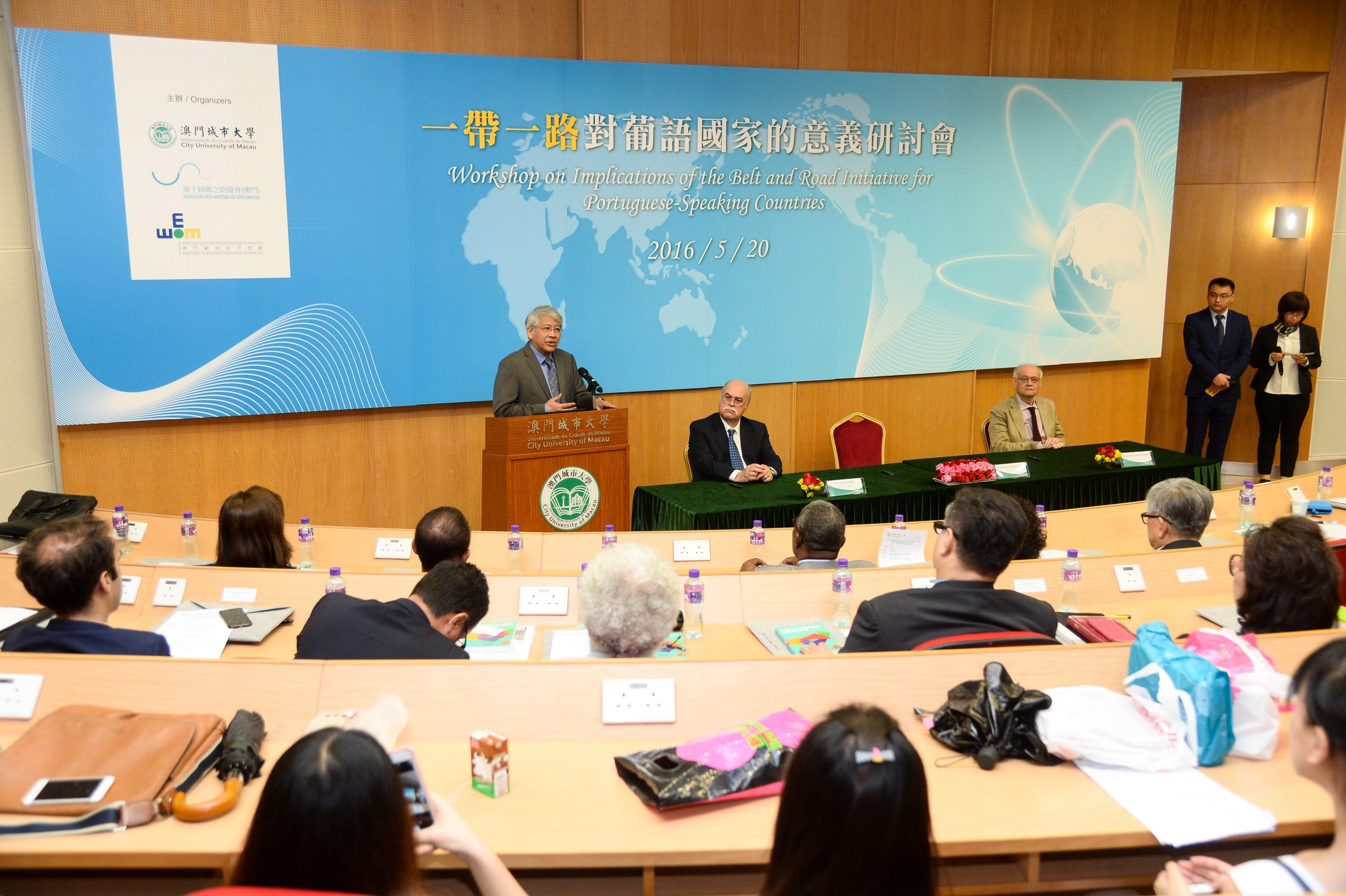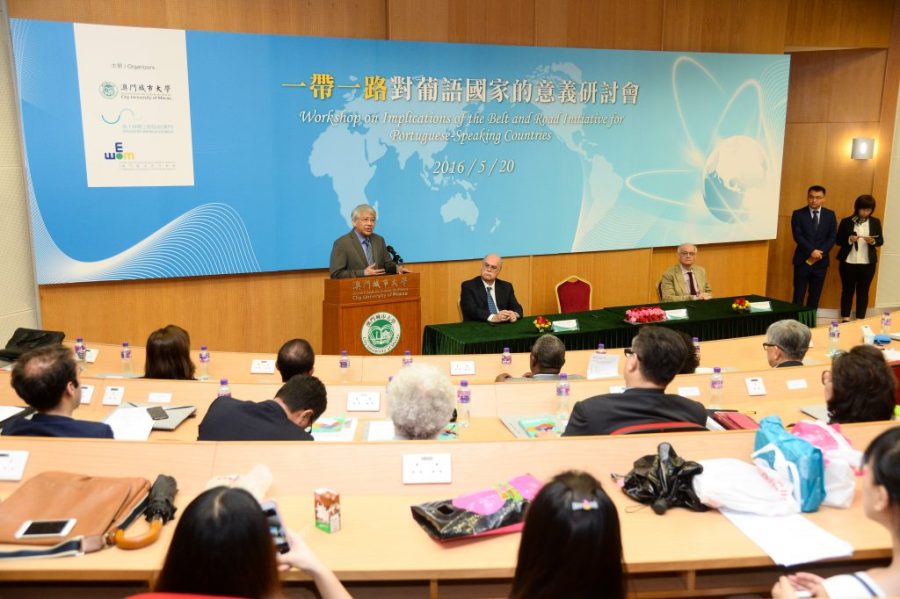Macau and the Portuguese-speaking countries can benefit from the “Belt and Road Initiative” concluded the one day “One Belt, One Road” workshop, co-organised by the City University of Macau, the Maritime Silk Road Association (Macau) and the Institute of European Studies of Macau (IEEM) held on Friday in Macau.
The conference was the first of its kind to be held in Macau and provided a forum to discuss the implications of the “One Belt, One Road” (OBOR) trade and investments opportunities in the Portuguese-speaking countries and the role of Macau in this important initiative.
Over 50 delegates attended the conference including senior government officials from mainland China and Macau, diplomats, university representatives, IEEM, Maritime Silk Road Association members and other local institutions.
Cao Wenlian, director general of the International Cooperation Centre of the National Development and Reform Commission (DRC) from China said that Macau must offer more language training options for local professionals so that they can take advantage of Macau’s unique position as a bridge between the East and West.
The president of the Macau Maritime Silk Road and Head of the China Business Centre in the Polytechnic University of Hong Kong, Thomas Chan Man Hung, said the OBOR is open to all countries, including the Portuguese-speaking countries, and believes Macau can play a role not only in the maritime silk road but also in the inland, linking businesses and partners.
José Luís Sales Marques, president of the IEEM, discussed recent comments by Chinese diplomats in Lisbon who support the idea that Portugal and the Portuguese-speaking countries must take part in the OBOR.
The role that Macau can play in OBOR was also highlighted by the researcher and journalist José Carlos Matias who stated that, even at a small scale, the special administrative region can have an impact because of its history and its contacts and existing business relationships both in China and in other Portuguese-speaking countries around the world.
Tong Hei, a researcher from the China Foreign Affairs University in Beijing, said he had no doubts that Macau can play an important role in the OBOR as a service platform due to it´s history, culture, geographic location and free economy, but it needs to move quickly to implement Chinese economic policies in the city in order not to be overtaken by neighboring cities and countries in the region.
In his closing statement, Francisco Leandro, assistant professor of the Saint Joseph University said that he considered the OBOR a step in the bigger picture of international globalisation. “We need to understand that in the long run, all Chinese initiatives have the objective of transferring economic power from the Atlantic to the Indian and Pacific Oceans.”






